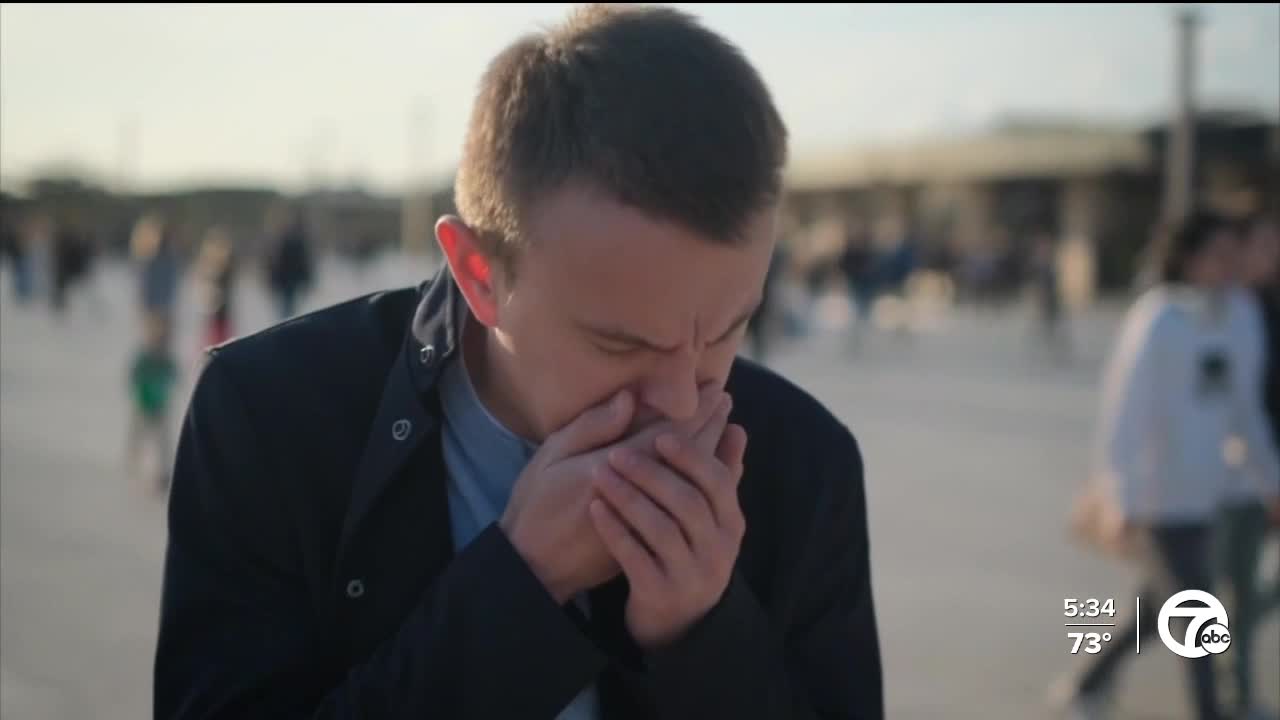(WXYZ) — In today’s Health Alert, cooler mornings are making it feel like fall, and for many, that means allergy season is kicking in. Millions are already dealing with sneezing, itchy eyes, and runny noses.
Fall allergies are a type of allergic rhinitis, often called hay fever. They happen when your immune system overreacts to pollen in the air.
Ragweed is the biggest trigger this time of year. The season usually starts in August, peaks in September and October, and lasts until the first hard frost.
Now, ragweed is a weed that grows wild almost everywhere, in every state, including here in the Midwest. Its pollen is especially powerful because it can travel for miles in the air. So even if it’s not growing in your yard, you can still breathe it in.
On top of that, climate change is making things worse. With warmer, longer summers, pollen season starts earlier, lasts longer, and produces more pollen. That’s why more people are feeling it now than in the past. About 32% of adults and 27% of kids deal with seasonal allergies. Symptoms can include sneezing, itchy watery eyes, coughing, fatigue, skin rash, hives, and even asthma flare-ups.
There are several steps you can take to stay ahead of symptoms. First, avoid triggers by watching pollen counts and staying indoors during high-pollen times, especially in the morning. Also, keep doors and windows closed.
When outside, wearing sunglasses, a hat, and a high-quality mask for yard work can help. Once you’re back indoors, change your clothes, take a shower, and wash your hair to remove pollen.
Another tip is to start allergy medications early. Don’t wait for symptoms to kick in. Start about two weeks before they usually appear, and continue for a couple of weeks after the first frost. Over-the-counter antihistamines, nasal sprays, or eye drops can make a difference.
Now, if your allergies are severe or persistent, immunotherapy, like shots or tablets, can help desensitize your immune system and build tolerance, reducing or eliminating symptoms.
Also, it's best to see a board-certified allergist if symptoms are worsening or if you haven’t been tested before. Allergists can find out what’s causing your symptoms and offer treatments not available over the counter. They can also help you put together a personalized plan so you can enjoy fall without all the sneezing and wheezing.




